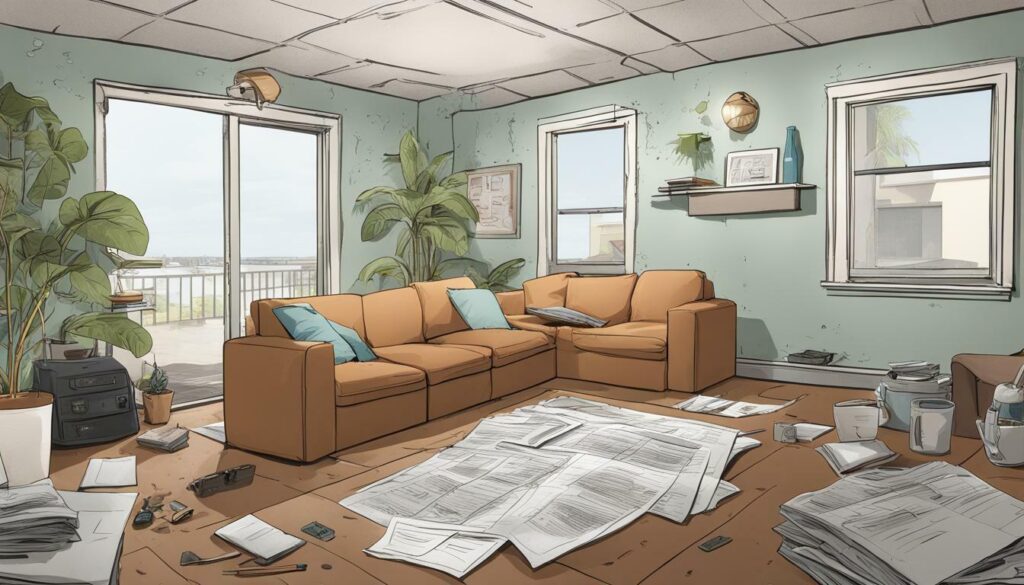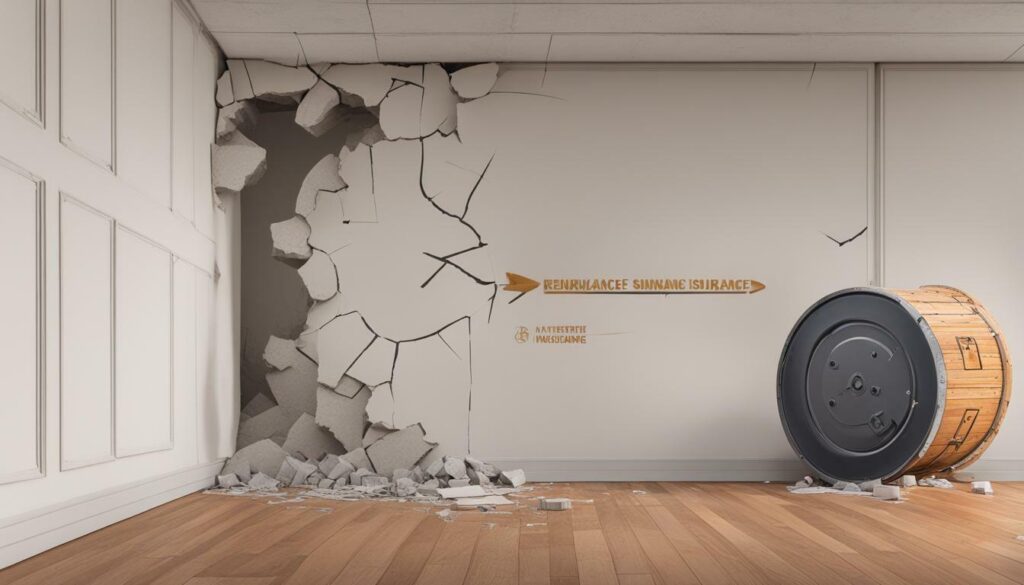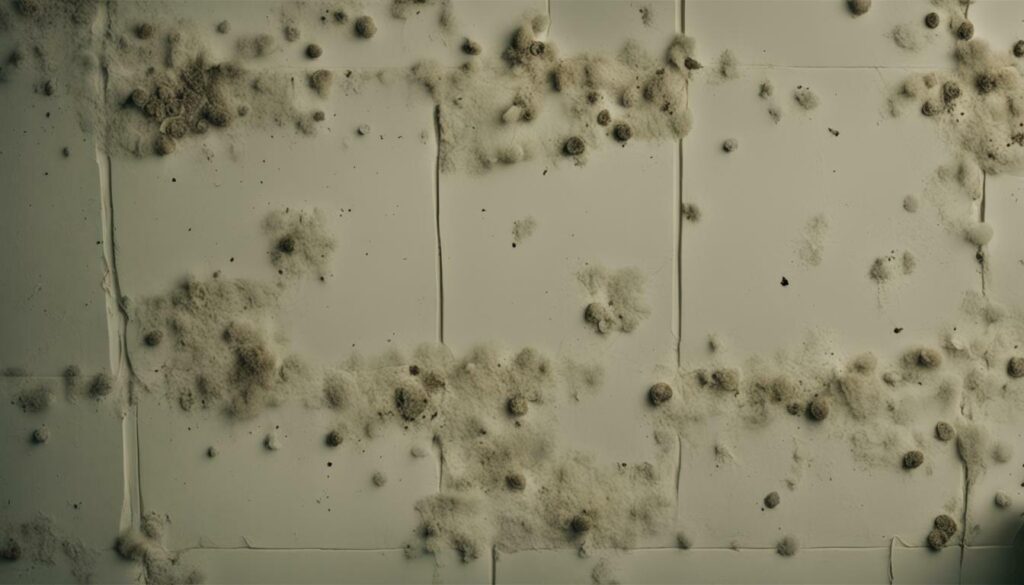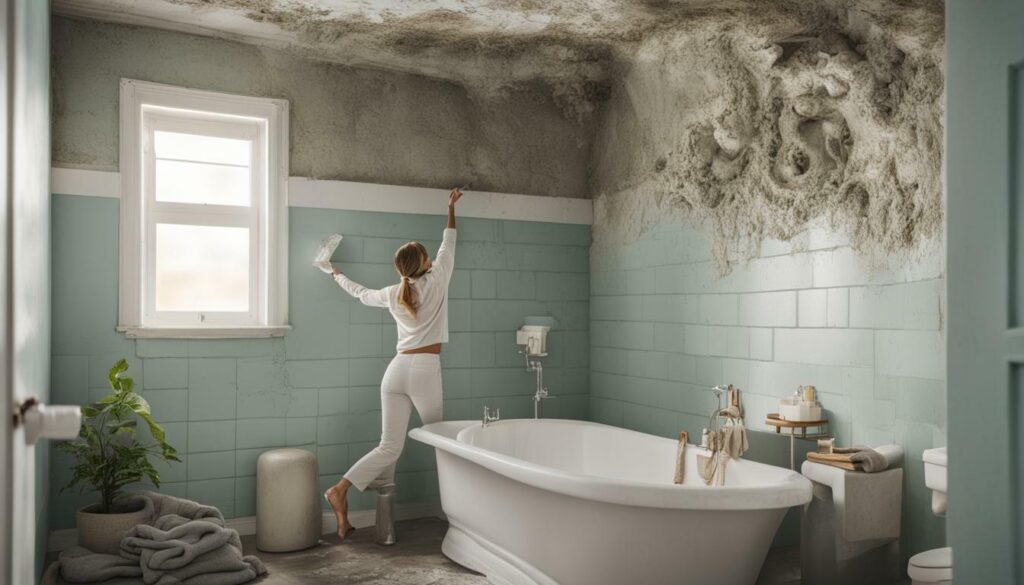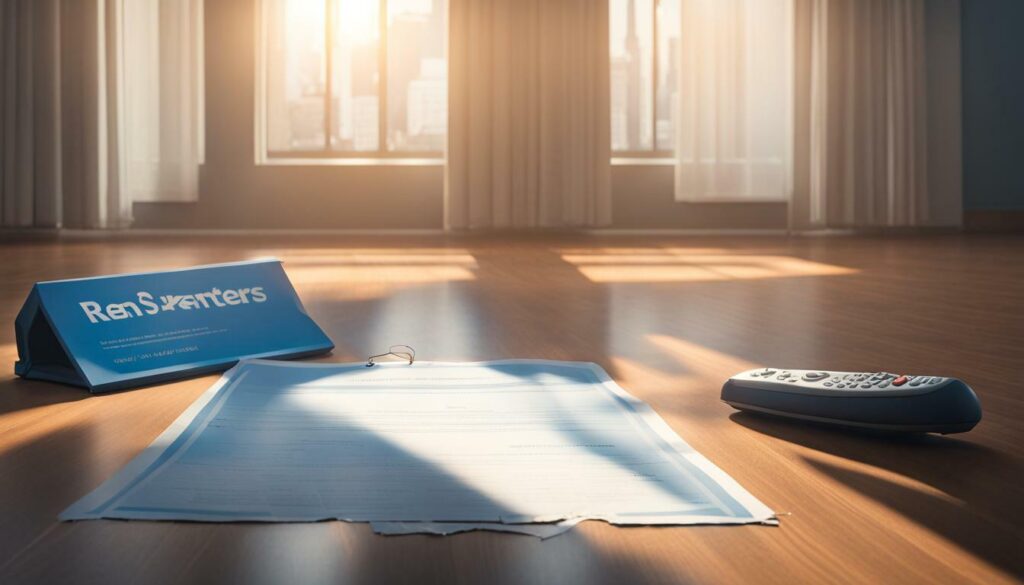As a renter, you may be wondering if mold is covered by your renter insurance. Mold can be a common problem in homes, especially in areas with high humidity levels. Unfortunately, mold damage can be costly to repair, and it’s important to know if your renter insurance covers it.
Keep reading to find out if your renter insurance covers mold damage and what steps you can take to protect yourself.
Key Takeaways:
- Many renter insurance policies do not automatically cover mold damage
- You may be able to add mold coverage to your policy for an additional cost
- Preventing mold growth can help you avoid costly damage and insurance claims
Understanding Renter Insurance Policies
When it comes to protecting yourself and your belongings as a renter, having a solid insurance policy is essential. Your landlord’s insurance will not cover your personal property in the event of theft or damage, so it’s important to take matters into your own hands. Renter insurance can provide you with peace of mind and financial protection in the case of unexpected incidents.
Your insurance policy will typically include renter protection, also known as personal property coverage. This coverage will help reimburse you for the loss or damage of your personal belongings, such as clothing, electronics, and furniture. Additionally, your policy may include liability coverage, which can help protect you if someone is injured in your rented space.
It’s important to carefully review your insurance coverage to ensure it meets your needs. Some policies may have limitations or exclusions, so it’s always a good idea to ask questions and clarify any details that may be unclear. Your insurance agent can help guide you through the process and provide you with the information you need to make informed decisions.
Insurance policies can vary greatly in terms of coverage and cost. Factors such as your location, the value of your belongings, and the level of coverage you choose can all impact your policy. Comparing policies and prices from different insurance providers can help you find the best fit for your needs and budget.
Overall, having renter insurance coverage can provide you with peace of mind and financial protection in the case of unexpected incidents. Take the time to review your policy and make sure you have the coverage you need to protect yourself and your belongings.
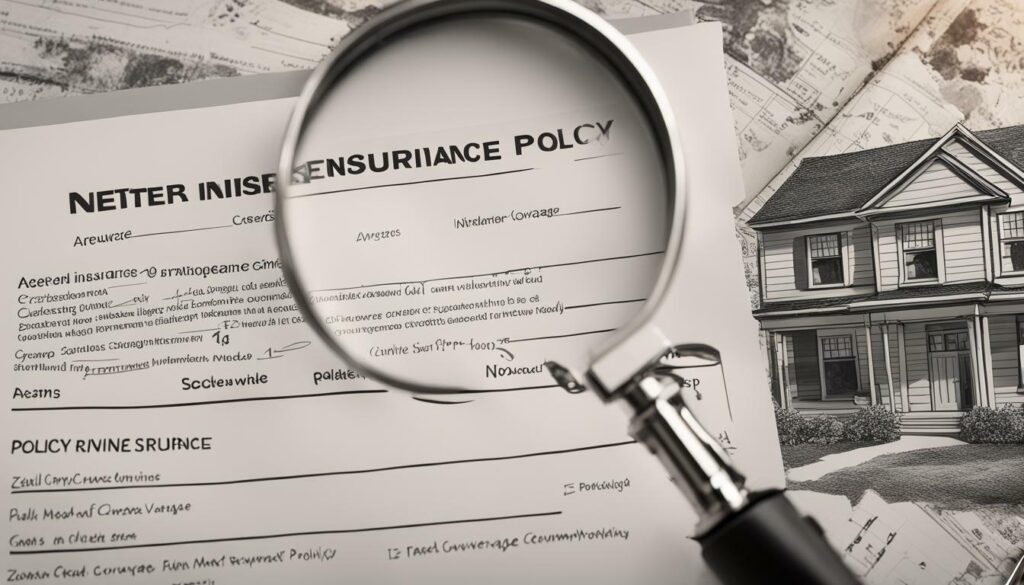

Does Renter Insurance Cover Mold Damage?
Having mold in your rented property can be a stressful and expensive experience. You may wonder if your renter insurance policy includes coverage for mold damage. Unfortunately, mold coverage is not always included in a standard renter’s insurance policy. So, the question remains: Does renter insurance cover mold damage?
The answer is not straightforward. Mold damage may or may not be covered, depending on the cause of the mold and the specifics of your policy. Mold caused by a sudden, unexpected event, such as a burst pipe, may be covered under your renter’s insurance policy. However, mold that results from neglect or poor maintenance on your part is unlikely to be covered.
Before filing an insurance claim for mold damage, it’s important to review your policy’s terms and conditions. Look for any exclusions or limitations that may apply. Some policies may have limits on the amount of coverage for mold damage, and others may specifically exclude mold damage from coverage.
If you do need to file a renter’s insurance claim for mold damage, it’s essential to involve a professional mold remediation service. Your insurance company may require that you use a specific remediation service to ensure that the mold is properly removed and prevent future damage. Be sure to follow the guidelines and procedures outlined by your insurance company to ensure that your claim is processed promptly and accurately.
Keep in mind that filing a claim for mold damage could result in higher insurance premiums in the future. Your insurance company may consider mold damage a higher risk and increase your rates accordingly. Consider seeking professional advice before filing a claim to weigh the potential costs and benefits.
Overall, while renter’s insurance policies may not always include mold coverage, it’s still important to have a policy in place to protect yourself and your belongings from unexpected events. Review your policy periodically and make sure you understand its terms and conditions to ensure that you have adequate protection in place.
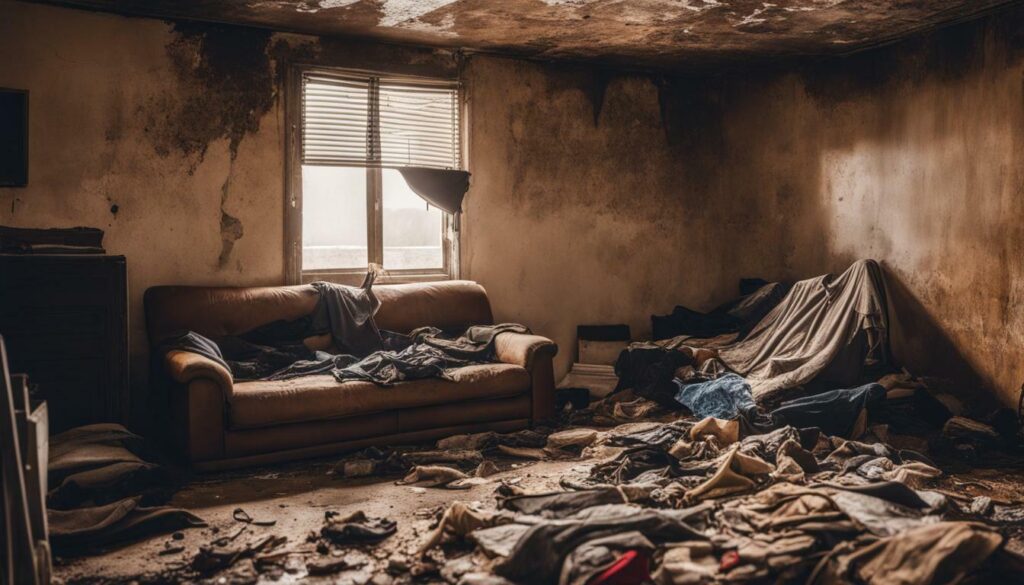

Mold Remediation and Insurance
If you’re dealing with mold damage in your rental property, it’s important to understand the mold remediation process and whether your renter insurance policy covers it. In most cases, mold remediation is necessary to remove the mold and prevent it from spreading further.
The cost of mold remediation can vary depending on the extent of the damage, the type of mold, and the location of the property. Some insurance policies may cover mold remediation, but it’s important to review your policy and speak with your insurance agent to understand what is covered and what is not.
If your insurance policy does cover mold remediation, you will need to file an insurance claim and provide documentation of the damage, including photos and records of any expenses related to the remediation process.
It’s important to be aware that some insurance policies have limits on mold coverage or may only cover specific types of mold. Additionally, some policies may require that the mold damage was caused by a covered peril, such as water damage from a burst pipe.
If your insurance policy does not cover mold remediation, you may need to pay for the remediation out of pocket. Keep in mind that mold can have serious long-term health implications, so it’s important to address the issue as soon as possible.
When hiring a professional mold remediation service, be sure to choose a reputable company with experience in handling mold issues. Ask for referrals and check online reviews before making your decision. You can also consult with your insurance agent to see if they have any recommended remediation companies that they work with.
Remember, mold remediation can be a costly and time-consuming process, but it’s important to address any mold damage in your rental property as soon as possible to prevent further damage and potential health risks.
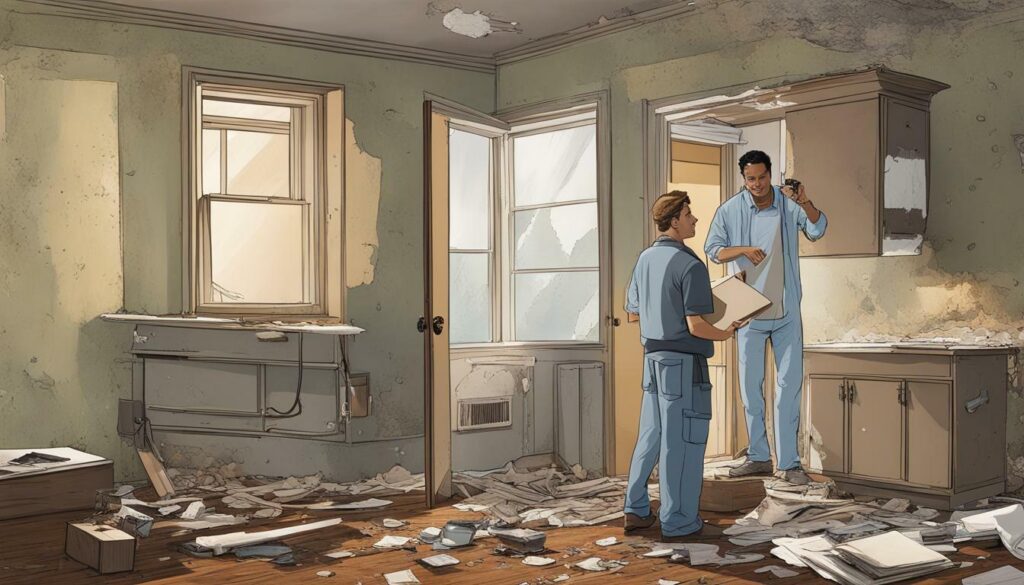

Mold Prevention and Insurance
Preventing mold damage is key to avoiding costly repairs and insurance claims. Many insurance policies offer coverage for mold damage, but it’s important to take preventative measures to avoid the need for a claim in the first place.
One of the easiest ways to prevent mold is to keep your living space clean and dry. Regularly wiping down surfaces and keeping humidity levels low can go a long way in preventing mold growth. Make sure to fix any leaks or water damage as soon as possible, as standing water is a breeding ground for mold.
Another important step in mold prevention is proper ventilation. Make sure to use exhaust fans in bathrooms and kitchens, and open windows when possible to allow for air flow. This can help reduce moisture buildup and prevent mold growth.
When it comes to insurance coverage for mold damage, it’s important to review your policy and make sure you have adequate protection. Some policies may have exclusions or limitations on mold coverage, so it’s important to understand your policy’s specifics.
If you’re unsure about your coverage or have questions about mold prevention, it’s always best to seek professional advice. A qualified mold remediation specialist can help assess your living space and offer recommendations for preventing and treating mold damage.


Overall, taking preventative measures and understanding your insurance coverage can help you avoid the need for a mold damage claim. By keeping your living space clean and dry, properly ventilated, and reviewing your policy, you can have peace of mind knowing you’re protected from the costly and damaging effects of mold.
Reviewing Your Insurance Policy
Now that you’ve learned about mold coverage and the different types of protection available, it’s time to review your insurance policy. It’s essential to understand the specifics of your policy and what it covers regarding mold damage.
Take the time to comb through your policy and look for information on renter protection, insurance coverage, and any clauses related to mold damage. Make sure you understand the deductible, the limits of your policy, and what is and isn’t covered. If you have any questions about your policy, don’t hesitate to contact your insurance agent for clarification.
Keep in mind that policies can vary widely, and new policies may even have different coverage options than older ones. So, it’s always a good idea to review your policy regularly and make any necessary adjustments to ensure adequate protection.
Finally, remember that mold damage can have significant long-term implications for your health and your home’s structural integrity. So, it’s crucial to have the right insurance coverage to protect yourself in case of an unexpected mold issue.
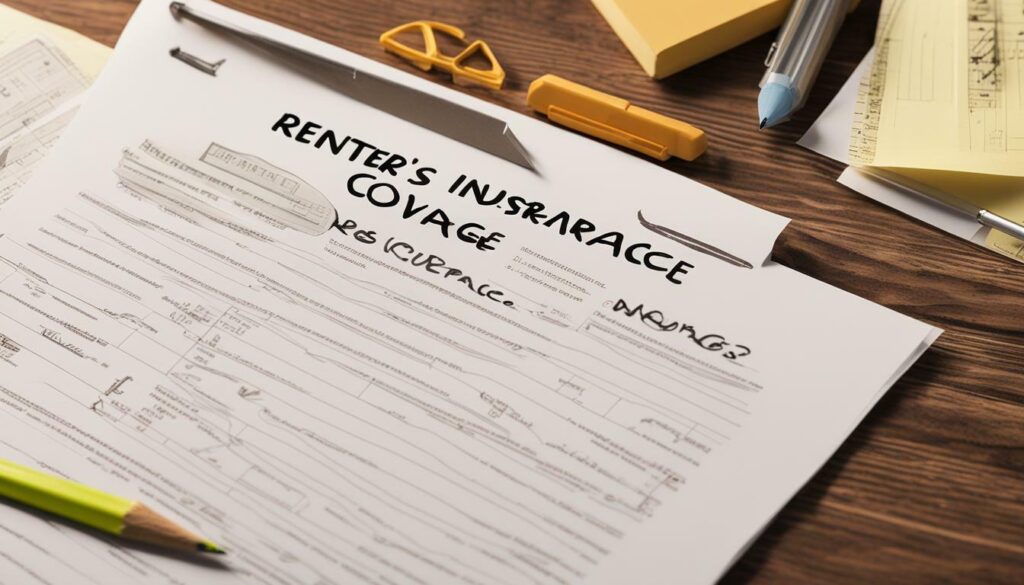

By reviewing your insurance policy and making sure you have adequate coverage for mold damage, you can have peace of mind knowing that you’re protected if anything should happen. Don’t hesitate to seek professional advice if you have any questions or concerns about your policy. It’s always better to be safe than sorry when it comes to protecting yourself and your home.
Additional Coverage Options
While renter insurance policies typically do not cover mold damage, there are additional coverage options that you can consider adding to your policy for extra protection.
Mold coverage: Some insurance companies offer additional mold coverage as an add-on to your existing renter insurance policy. This coverage can help cover the costs of mold remediation and repair if mold damage is discovered in your rental property.
Flood insurance: If your rental property is in an area prone to flooding, it may be a good idea to add flood insurance to your policy. Flood insurance can help cover the costs of damage caused by flooding, including mold damage.
Be sure to review your insurance policy and discuss your options with your insurance provider to determine the best coverage for your specific needs.
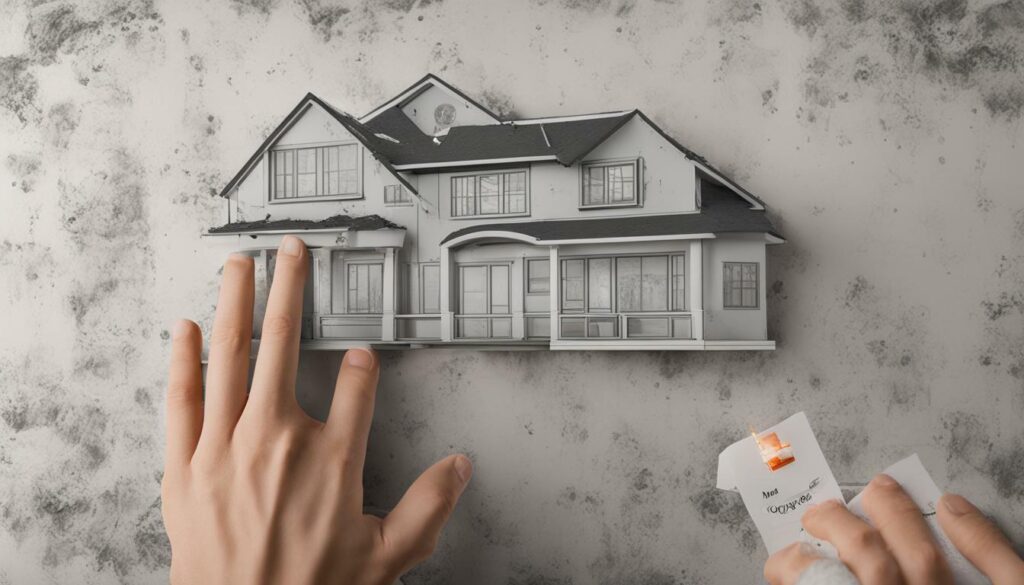

Seeking Professional Advice
If you have experienced mold damage in your rental property and need to file an insurance claim, it may be beneficial to seek professional advice. A public adjuster or an attorney with experience in mold claims can help you navigate the claims process and ensure that you receive fair compensation for the damage.
It is important to note that insurance policies and regulations regarding mold can be complex and vary by state. Seeking the advice of a professional can help ensure that you understand your rights and options.
Furthermore, a professional can also help you document the extent of the mold damage, which may be crucial in filing a successful insurance claim. They may also be able to recommend reputable mold removal and remediation services.
Remember, dealing with mold damage can be stressful, but seeking professional advice can help ease the burden and ensure that your rights are protected throughout the claims process.
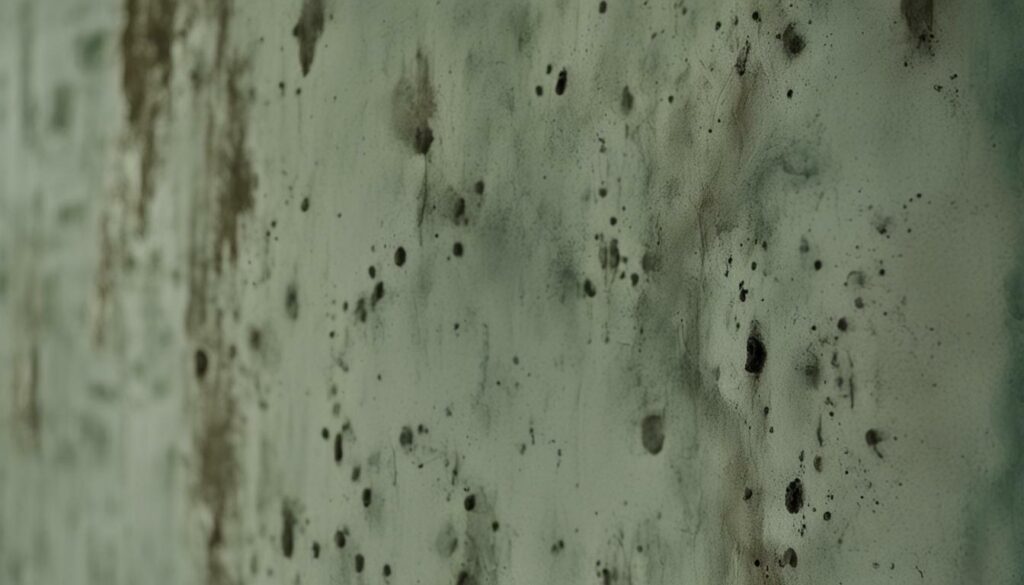

Long-Term Implications of Mold Damage
Ignoring mold damage can have serious long-term implications on your health and the structural integrity of your home. Exposure to mold can lead to respiratory problems, allergies, and even more severe health conditions.
It is important to file an insurance claim as soon as you notice mold damage in your rental property. The longer you wait, the worse the damage can become, possibly leading to a denial of your claim.
Once your insurance claim is filed, it is crucial to seek out professional mold remediation services to address the damage. Mold removal can be a complex and hazardous process, requiring specialized equipment and expertise.
Even after the mold is removed, there may still be long-term implications. Structural damage caused by mold can weaken the integrity of your home, leading to costly repairs down the line. It is important to have a professional inspect your property and address any underlying issues.
Be sure to review your insurance policy thoroughly and seek out any additional coverage options that may be available. Investing in mold prevention measures, such as proper ventilation and moisture control, can also help minimize the risk of future mold damage.
Remember, the long-term implications of mold damage can be severe. Don’t hesitate to seek professional advice and take swift action to address any issues that arise.
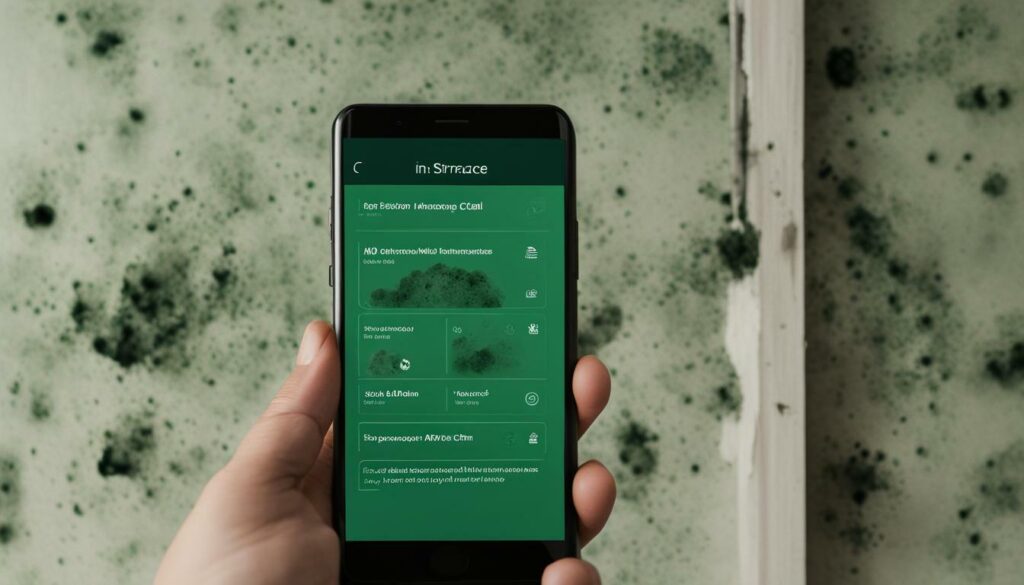

Conclusion
In conclusion, renter insurance policies can vary in their coverage of mold damage. It’s essential to understand the specifics of your insurance policy and whether you have mold coverage. If your policy does not cover mold damage, you may want to consider adding additional coverage to protect yourself.
Mold can cause severe damage to your health and home, so it’s crucial to take preventative measures against it. Regularly inspecting your home and addressing any signs of mold can help prevent extensive damage in the future.
If you do experience mold damage, seeking professional advice and filing an insurance claim promptly can help mitigate the long-term implications of the damage on your health and home.
Remember, understanding your insurance policy is key to ensuring you have the proper coverage for any unforeseen circumstances. Be sure to review your policy regularly and consider adding additional coverage options to protect yourself fully.
FAQ
Q: Does renter insurance cover mold?
A: Yes, renter insurance can cover mold damage, but it depends on your specific insurance policy. Some policies may include mold coverage as part of their standard coverage, while others may require an additional endorsement or rider. It’s important to review your policy carefully to understand what is covered and what is not.
Q: What does renter insurance typically cover?
A: Renter insurance policies generally provide coverage for personal belongings, liability protection, and additional living expenses in the event of a covered loss. However, the specific coverage can vary between policies and insurance providers. It’s essential to read your policy and discuss it with your insurance agent to understand the coverage you have.
Q: How can I prevent mold in my rental property?
A: To prevent mold in your rental property, ensure proper ventilation in areas prone to moisture like bathrooms and kitchens. Fix any leaks promptly and address water damage immediately. Keep humidity levels low, use dehumidifiers if necessary, and regularly clean and dry areas that are susceptible to mold growth. Regular inspections and maintenance can help identify and prevent mold growth.
Q: What should I do if I discover mold in my rental property?
A: If you discover mold in your rental property, notify your landlord or property management immediately. They should take appropriate steps to address the mold issue, including mold testing, remediation, and repairs. Document the mold problem with photos and keep records of any communication with your landlord or property management.
Q: How do I file an insurance claim for mold damage?
A: If you need to file an insurance claim for mold damage, contact your insurance provider directly. They will guide you through the claims process and provide instructions on documentation and evidence required to support your claim. It’s important to act quickly and document the damage to support your case.

